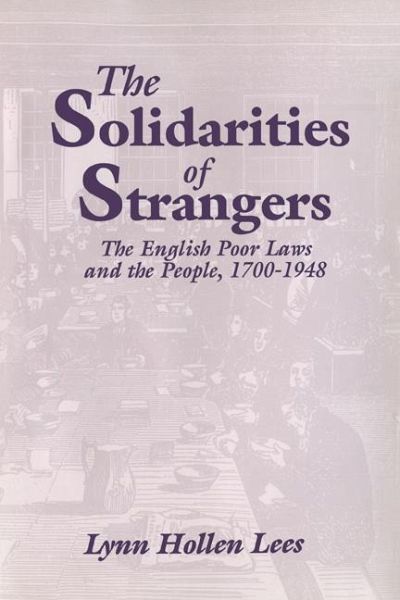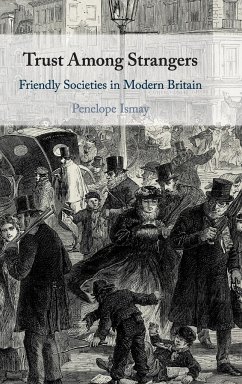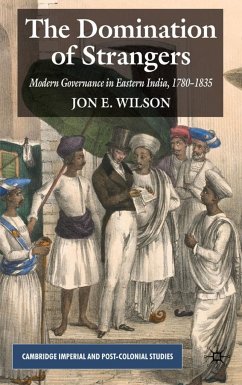
The Solidarities of Strangers
The English Poor Laws and the People, 1700 1948

PAYBACK Punkte
45 °P sammeln!
The Solidarities of Strangers is a study of English policies toward the poor from the seventeenth century to the present that combines individual stories with official actions. Lynn Lees shows how clients as well as officials negotiated welfare settlements. Cultural definitions of entitlement, rather than available resources, determined amounts and beneficiaries. Indeed, industrialization and growing wealth went along with restricted payments to the needy, while universal allowances and insurance systems expanded as the economy faltered and world wars crippled budgets and drained resources. Al...
The Solidarities of Strangers is a study of English policies toward the poor from the seventeenth century to the present that combines individual stories with official actions. Lynn Lees shows how clients as well as officials negotiated welfare settlements. Cultural definitions of entitlement, rather than available resources, determined amounts and beneficiaries. Indeed, industrialization and growing wealth went along with restricted payments to the needy, while universal allowances and insurance systems expanded as the economy faltered and world wars crippled budgets and drained resources. Although the English poor laws were a 'residualist' system, aiding the destitute when neither family nor charities covered needs, they went through cycles of generosity and meanness that affected men and women unequally. The long term history of welfare in England and Wales has not been a story of continued progress and improvement but one determined by continually changing attitudes toward poverty.
Table of contents:
Introduction; Part I. Residualism Taken for Granted, 1700-1834: 1. The welfare process under the old Poor Laws; 2. Weekly doles: communal support in the eighteenth century; 3. Excluding paupers, 1780-1834; Part II. Residualism Refined and Restricted, 1834-1860; 4. Classifying and confining paupers under the new Poor Law; 5. 'Though Poor, I'm a Gentleman Still'; 6. Outcomes: the treatment of Paupers, 1834-1860; Part III. Residualism Re-evaluated and Rejected: 1860-1948; 7. Reimaging the urban poor, 1860-1890; 8. The multi-campaigned war on poverty, 1890-1914; 9. Popular rejection of the Poor Law; 10. New principles for social action, 1906-1948; Epilogue; Appendix.
A study of English policies toward the poor from the 1600s to the present, Lees shows how clients and officials negotiated welfare settlements. Changing cultural definitions of entitlement, rather than available resources, determined amounts and beneficiaries, creating cycles of generosity and meanness that affected men and women unequally.
A study of English policies toward the poor from the 1600s to the present, Lees shows how clients and officials negotiated welfare settlements.
Table of contents:
Introduction; Part I. Residualism Taken for Granted, 1700-1834: 1. The welfare process under the old Poor Laws; 2. Weekly doles: communal support in the eighteenth century; 3. Excluding paupers, 1780-1834; Part II. Residualism Refined and Restricted, 1834-1860; 4. Classifying and confining paupers under the new Poor Law; 5. 'Though Poor, I'm a Gentleman Still'; 6. Outcomes: the treatment of Paupers, 1834-1860; Part III. Residualism Re-evaluated and Rejected: 1860-1948; 7. Reimaging the urban poor, 1860-1890; 8. The multi-campaigned war on poverty, 1890-1914; 9. Popular rejection of the Poor Law; 10. New principles for social action, 1906-1948; Epilogue; Appendix.
A study of English policies toward the poor from the 1600s to the present, Lees shows how clients and officials negotiated welfare settlements. Changing cultural definitions of entitlement, rather than available resources, determined amounts and beneficiaries, creating cycles of generosity and meanness that affected men and women unequally.
A study of English policies toward the poor from the 1600s to the present, Lees shows how clients and officials negotiated welfare settlements.














